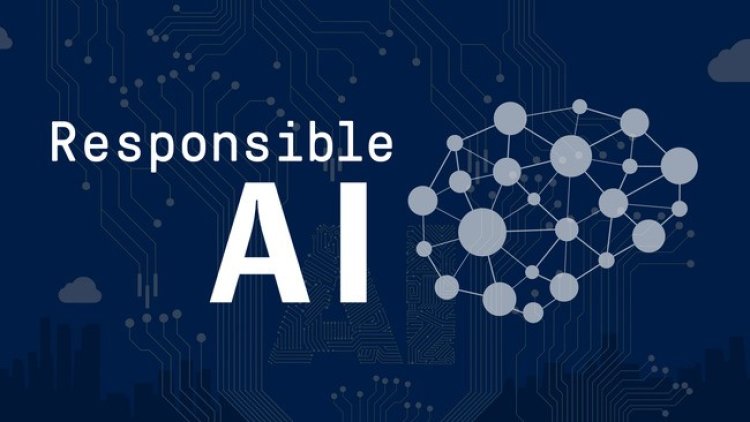Responsible AI Explained: Importance and Implications
Discover what responsible AI means for businesses and society. Learn about its ethical implications and the importance of accountability in AI development.
Share this Post to earn Money ( Upto ₹100 per 1000 Views )

As artificial intelligence (AI) becomes increasingly integrated into our daily lives, the conversation around responsible AI has gained significant momentum. Responsible AI encompasses the ethical use of AI technologies, emphasizing fairness, transparency, accountability, and respect for user privacy. This framework ensures that AI systems operate in ways that are not only effective but also align with societal values and norms.
The Importance of Responsible AI
1. Ethical Considerations
The development and deployment of AI systems raise critical ethical questions. Responsible AI seeks to mitigate biases that can emerge from training data, ensuring that AI algorithms treat all users equitably. This is particularly important in sectors like healthcare, finance, and law enforcement, where biased AI can lead to unfair treatment of individuals based on race, gender, or socioeconomic status. Companies like EthosAI are at the forefront of promoting ethical AI practices, emphasizing the need for diverse datasets and transparent algorithms.
2. Building Trustworthy AI
For AI systems to be effective, they must be trustworthy. Responsible AI emphasizes the importance of transparency in how algorithms make decisions. By making AI systems explainable, stakeholders can better understand the rationale behind AI-generated outcomes. This transparency not only fosters trust among users but also encourages accountability among developers and organizations.
3. Regulatory Compliance
Governments and regulatory bodies worldwide are increasingly focusing on the implications of AI technologies. Responsible AI practices help organizations navigate this evolving landscape by ensuring compliance with emerging regulations. Adhering to responsible AI principles can shield companies from legal repercussions and promote positive relationships with regulators.
4. Enhancing User Experience
When users feel confident in the AI systems they interact with, they are more likely to engage with those technologies. Responsible AI fosters user engagement by prioritizing privacy and consent. For instance, informing users about how their data is used and providing options for opting out can significantly enhance their experience. Companies that prioritize responsible AI can differentiate themselves in a crowded marketplace by fostering customer loyalty.
The Implications of Responsible AI
1. Social Impact
The implications of responsible AI extend beyond individual companies; they have the potential to reshape society. Ethical AI development can lead to technologies that address societal challenges, such as climate change or public health crises. By focusing on responsible AI practices, organizations can create solutions that have a positive social impact.
2. Economic Growth
Investing in responsible AI can also drive economic growth. As consumers become more aware of ethical considerations, businesses that adopt responsible practices can gain a competitive advantage. The focus on trustworthy AI can lead to increased consumer adoption of AI solutions, resulting in higher sales and market share for companies committed to ethical standards.
3. Future of Work
As AI continues to transform the workplace, responsible AI can guide the development of systems that complement human skills rather than replace them. By promoting collaboration between AI and humans, organizations can create a more inclusive work environment, encouraging innovation and creativity.
Conclusion
In an era where AI technologies are rapidly evolving, the need for responsible AI is more crucial than ever. By focusing on ethical considerations, building trustworthy AI systems, and understanding the broader implications, organizations can harness the power of AI while ensuring its benefits are accessible and equitable for all. Initiatives like EthosAI are leading the way in this important movement, advocating for practices that prioritize not only innovation but also integrity in AI development. Embracing responsible AI is not just a moral obligation; it is a pathway to a sustainable and equitable future.















